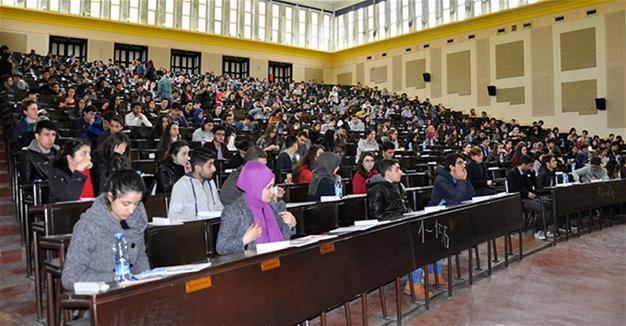Turkey has unhappiest students in new 72-country OECD survey
ISTANBUL

Turkey has the unhappiest students surveyed in a new Organization for Economic Cooperation and Development (OECD) report covering 72 countries.
The Paris-based OECD’s Programme for International Students Assessment (PISA) published its latest report on April 20, surveying students’ performances in school, relationships with schoolmates and teachers, family environments and free time.
Some 540,000 students from 72 different countries participated in the study.
The survey found Turkish students had the worst life satisfaction, with more than 20 percent saying they were “not satisfied” with life. In contrast, fewer than four percent of students in the Netherlands said they are “not satisfied” with life.
Some 28.6 percent of students over the age of 15 in Turkey are not happy with their lives, according to PISA, a rate three times higher than the average.
Boys were happier overall, with 39 percent reporting being “very satisfied” compared with 29 percent of girls, the OECD report said. However the gap is minimal between high- and low-achieving students.
In 34 of the countries studied, more than 10 percent of the students said their classmates make fun of them several times a month.
Around four percent reported being hit or pushed several times a month, while 7.7 percent said they were victims of physical harassment several times a year.
Among those who reported frequent harassment, 42 percent said they felt like outsiders at school.
Some 18.6 percent of students in Turkey said they were bullied few times a month, while Turkey reported the second highest level of stress among students.
Meanwhile, the study also warned about excessive internet use, saying more than one in four (26 percent) of respondents spent more than six hours a day connected at the weekend, and 16 percent said they devoted similar chunks of time online on weekdays.
“These ’extreme internet users’ are more likely to feel lonely at school, have low expectations of further education, and tend to arrive late for school,” the report said.
“There are no quick fixes for the risks of the digital era, but schools can create opportunities for students to use the internet more responsibly,” PISA coordinator Andreas Schleicher said in the report.
Sources of stress include anxiety about schoolwork and income inequality.
Students believing themselves to be less wealthy than most of their classmates tend to report lower satisfaction with life, the report said.
But disadvantaged students with wealthier classmates who have “pro-school attitudes and high expectations for themselves... tend to develop higher ambitions for their future,” the report concluded.
 Turkey has the unhappiest students surveyed in a new Organization for Economic Cooperation and Development (OECD) report covering 72 countries.
Turkey has the unhappiest students surveyed in a new Organization for Economic Cooperation and Development (OECD) report covering 72 countries.